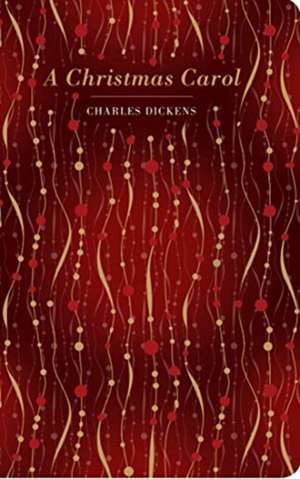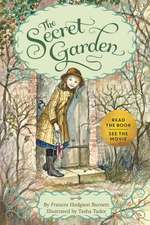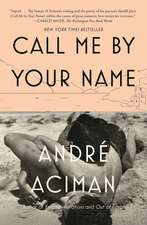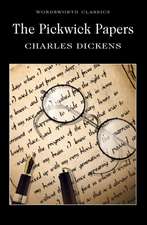A Christmas Carol: Chiltern Classic
Autor Charles Dickensen Limba Engleză Hardback – 13 aug 2020
Din seria Chiltern Classic
-
 Preț: 125.97 lei
Preț: 125.97 lei -
 Preț: 128.27 lei
Preț: 128.27 lei -
 Preț: 126.75 lei
Preț: 126.75 lei -
 Preț: 132.90 lei
Preț: 132.90 lei -
 Preț: 127.26 lei
Preț: 127.26 lei -
 Preț: 128.04 lei
Preț: 128.04 lei -
 Preț: 128.27 lei
Preț: 128.27 lei -
 Preț: 127.26 lei
Preț: 127.26 lei -
 Preț: 124.95 lei
Preț: 124.95 lei -
 Preț: 131.61 lei
Preț: 131.61 lei -
 Preț: 130.34 lei
Preț: 130.34 lei -
 Preț: 132.13 lei
Preț: 132.13 lei -
 Preț: 127.51 lei
Preț: 127.51 lei -
 Preț: 123.60 lei
Preț: 123.60 lei -
 Preț: 129.31 lei
Preț: 129.31 lei -
 Preț: 132.74 lei
Preț: 132.74 lei -
 Preț: 126.69 lei
Preț: 126.69 lei -
 Preț: 132.92 lei
Preț: 132.92 lei -
 Preț: 130.84 lei
Preț: 130.84 lei -
 Preț: 128.79 lei
Preț: 128.79 lei -
 Preț: 125.18 lei
Preț: 125.18 lei -
 Preț: 127.00 lei
Preț: 127.00 lei -
 Preț: 126.24 lei
Preț: 126.24 lei -
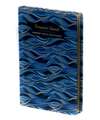 Preț: 126.75 lei
Preț: 126.75 lei -
 Preț: 125.72 lei
Preț: 125.72 lei -
 Preț: 132.38 lei
Preț: 132.38 lei - 16%
 Preț: 107.32 lei
Preț: 107.32 lei -
 Preț: 129.24 lei
Preț: 129.24 lei -
 Preț: 123.99 lei
Preț: 123.99 lei -
 Preț: 131.10 lei
Preț: 131.10 lei -
 Preț: 126.75 lei
Preț: 126.75 lei -
 Preț: 133.40 lei
Preț: 133.40 lei -
 Preț: 125.46 lei
Preț: 125.46 lei -
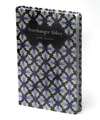 Preț: 126.75 lei
Preț: 126.75 lei -
 Preț: 125.20 lei
Preț: 125.20 lei -
 Preț: 130.84 lei
Preț: 130.84 lei -
 Preț: 126.75 lei
Preț: 126.75 lei -
 Preț: 124.95 lei
Preț: 124.95 lei -
 Preț: 131.61 lei
Preț: 131.61 lei -
 Preț: 125.72 lei
Preț: 125.72 lei -
 Preț: 131.61 lei
Preț: 131.61 lei -
 Preț: 125.97 lei
Preț: 125.97 lei -
 Preț: 127.51 lei
Preț: 127.51 lei -
 Preț: 128.68 lei
Preț: 128.68 lei -
 Preț: 130.59 lei
Preț: 130.59 lei -
 Preț: 129.31 lei
Preț: 129.31 lei -
 Preț: 128.79 lei
Preț: 128.79 lei -
 Preț: 125.72 lei
Preț: 125.72 lei -
 Preț: 127.51 lei
Preț: 127.51 lei
Preț: 124.95 lei
Nou
23.92€ • 25.14$ • 19.89£
Carte disponibilă
Livrare economică 07-21 decembrie
Livrare express 23-29 noiembrie pentru 20.24 lei
Specificații
ISBN-10: 1912714701
Pagini: 112
Dimensiuni: 125 x 185 x 15 mm
Greutate: 0.25 kg
Editura: chiltern publishing
Seria Chiltern Classic
Notă biografică
When the family fortunes improved, Charles went back to school, after which he became an office boy, a freelance reporter and finally an author. With Pickwick Papers (1836-7) he achieved immediate fame; in a few years he was easily the post popular and respected writer of his time. It has been estimated that one out of every ten persons in Victorian England was a Dickens reader. Oliver Twist (1837), Nicholas Nickleby (1838-9) and The Old Curiosity Shop (1840-41) were huge successes. Martin Chuzzlewit (1843-4) was less so, but Dickens followed it with his unforgettable, A Christmas Carol (1843), Bleak House (1852-3), Hard Times (1854) and Little Dorrit (1855-7) reveal his deepening concern for the injustices of British Society. A Tale of Two Cities (1859), Great Expectations (1860-1) and Our Mutual Friend (1864-5) complete his major works.
Dickens’s marriage to Catherine Hoggarth produced ten children but ended in separation in 1858. In that year he began a series of exhausting public readings; his health gradually declined. After putting in a full day’s work at his home at Gads Hill, Kent on June 8, 1870, Dickens suffered a stroke, and he died the following day.
From the Paperback edition.
Extras
Mind! I don't mean to say that I know, of my own knowledge, what there is particularly dead about a door-nail. I might have been inclined, myself, to regard a coffin-nail as the deadest piece of ironmongery in the trade. But the wisdom of our ancestors is in the simile; and my unhallowed hands shall not disturb it, or the Country's done for. You will therefore permit me to repeat, emphatically, that Marley was as dead as a door-nail.
Scrooge knew he was dead? Of course he did. How could it be otherwise? Scrooge and he were partners for I don't know how many years. Scrooge was his sole executor, his sole administrator, his sole assign, his sole residuary legatee, his sole friend and sole mourner. And even Scrooge was not so dreadfully cut up by the sad event, but that he was an excellent man of business on the very day of the funeral, and solemnised it with an undoubted bargain.
The mention of Marley's funeral brings me back to the point I started from. There is no doubt that Marley was dead. This must be distinctly understood, or nothing wonderful can come of the story I am going to relate. If we were not perfectly convinced that Hamlet's Father died before the play began, there would be nothing more remarkable in his taking a stroll at night, in an easterly wind, upon his own ramparts, than there would be in any other middle-aged gentleman rashly turning out after dark in a breezy spot—say Saint Paul's Churchyard for instance—literally to astonish his son's weak mind.
Scrooge never painted out Old Marley's name. There it stood, years afterwards, above the warehouse door: Scrooge and Marley. The firm was known as Scrooge and Marley. Sometimes people new to the business called Scrooge Scrooge, and sometimes Marley, but he answered to both names: it was all the same to him.
Oh! but he was a tight-fisted hand at the grindstone, Scrooge! a squeezing, wrenching, grasping, scraping, clutching, covetous old sinner! Hard and sharp as flint, from which no steel had ever struck out generous fire; secret, and self-contained, and solitary as an oyster. The cold within him froze his old features, nipped his pointed nose, shrivelled his cheek, stiffened his gait; made his eyes red, his thin lips blue; and spoke out shrewdly in his grating voice. A frosty rime was on his head, and on his eyebrows, and his wiry chin. He carried his own low temperature always about with him; he iced his office in the dog-days; and didn't thaw it one degree at Christmas.
External heat and cold had little influence on Scrooge. No warmth could warm, nor wintry weather chill him. No wind that blew was bitterer than he, no falling snow was more intent upon its purpose, no pelting rain less open to entreaty. Foul weather didn't know where to have him. The heaviest rain, and snow, and hail, and sleet, could boast of the advantage over him in only one respect. They often 'came down' handsomely, and Scrooge never did.
Nobody ever stopped him in the street to say, with gladsome looks, 'My dear Scrooge, how are you? when will you come to see me?' No beggars implored him to bestow a trifle, no children asked him what it was 'oclock, no man or woman ever once in all his life inquired the way to such and such a place, of Scrooge. Even the blindmen's dogs appeared to know him; and when they saw him coming on, would tug their owners into doorways and up courts; and then would wag their tails as though they said, 'no eye at all is better than an evil eye, dark master!'
But what did Scrooge care? It was the very thing he liked. To edge his way along the crowded paths of life, warning all human sympathy to keep its distance, was what the knowing ones call 'nuts' to Scrooge.
Once upon a time—of all the good days in the year, on Christmas Eve—old Scrooge sat busy in his counting-house. It was cold, bleak, biting weather: foggy withal: and he could hear the people in the court outside, go wheezing up and down, beating their hands upon their breasts, and stamping their feet upon the pavement-stones to warm them. The city clocks had only just gone three, but it was quite dark already: it had not been light all day: and candles were flaring in the windows of the neighbouring offices, like ruddy smears upon the palpable brown air. The fog came pouring in at every chink and keyhole, and was so dense without, that although the court was of the narrowest, the houses opposite were mere phantoms. To see the dingy cloud come drooping down, obscuring everything, one might have thought that Nature lived hard by, and was brewing on a large scale.
The door of Scrooge's counting-house was open that he might keep his eye upon his clerk, who in a dismal little cell beyond, a sort of tank, was copying letters. Scrooge had a very small fire, but the clerk's fire was so very much smaller that it looked like one coal. But he couldn't replenish it, for Scrooge kept the coal-box in his own room; and so surely as the clerk came in with the shovel, the master predicted that it would be necessary for them to part. Wherefore the clerk put on his white comforter, and tried to warm himself at the candle; in which effort, not being a man of a strong imagination, he failed.
From the Paperback edition.
Textul de pe ultima copertă
With its characters exhibiting many qualities as well as failures often ascribed to Dickens himself, the imaginative and entertaining tale relates Ebenezer Scrooge's eerie encounters with a series of spectral visitors. Journeying with them through Christmases past, present, and future, he is ultimately transformed from an arrogant, obstinate, and insensitive miser to a generous, warmhearted, and caring human being. Written by one of England's greatest and most popular novelists, "A Christmas Carol" has come to epitomize the true meaning of Christmas."
Descriere
A beautiful edition of the classic tale, A Christmas Carol. Ebenezer Scrooge is a miserly and mean-spirited old man. He treats family, coworkers, and strangers alike with distaste.
But on Christmas Eve he receives a visit from the ghost of his dead business partner, Jacob Marley. Marley warns Scrooge that unless he learns to be less greedy and self-serving that Scrooge will be condemned to wander Earth weighed down with heavy chains, as Marley has been. Marley tells Scrooge that three spirits will visit him.
First, the Ghost of Christmas Past visits and shows Scrooge his own Christmases past, including the Christmas when his fiance left him for being obsessed with money. Second, the Ghost of Christmas Present shows Scrooge all the happiness occurring at the various Christmas festivities around the city. Finally, The Ghost of Christmas Yet to Come shows Scrooge what will happen after his own death, and Scrooge is horrified to find that everyone will celebrate it.
Distraught, Scrooge begs for another chance, and suddenly wakes in his own bed. Forever after he honours the spirit of Christmas with kindness, generosity and warmth. a classic Christmas story which will be read over each year SCHOLASTIC "INK DOT" CLASSICS - COLLECT THEM ALL! A Tale of Two Cities Christmas Stories Emma Five Children and It Frankenstein Jane Eyre Little Women Macbeth Oliver Twist Pollyanna Romeo and Juliet The Strange Case of Dr Jekyll and Mr Hyde The Happy Prince and Other Stories
Recenzii
Bah! Humbug!' Mr Scrooge is a squeezing, wrenching, grasping, scraping, clutching, miserable old man. Nobody stops him in the street to say a cheery hello; nobody would dare ask him for a favour. And I hope you'd never be so foolish as to wish him a 'Merry Christmas'! Scrooge doesn't believe in Christmas, charity, kindness - or ghosts. But one cold Christmas Eve, Scrooge receives some unusual visitors who show him just how very mistaken he's been...BACKSTORY: Learn all about how the author Charles Dickens invented Christmas!
- "It has it all: a spooky ghost story, a heartwarming redemption and a great plot with a satisfyingly ending." --"The Times"
It has it all: a spooky ghost story, a heartwarming redemption and a great plot with a satisfyingly ending The Times A story which, perhaps more than any other, sums up the spirit of the British Christmas Sunday Telegraph A little masterpiece...irresistible Sunday Express
